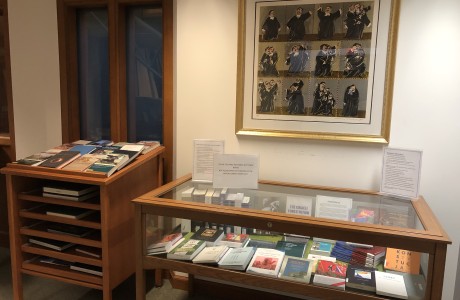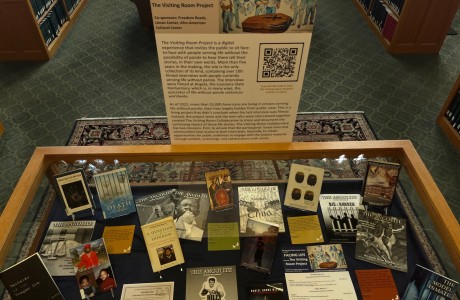Boolean Searching In Encore
The Law Library’s catalog is available in its “classic” form and in a single box faceted form called Encore. Traditionally, among the benefits of the “classic” catalog was the ability of the searcher to conduct complex “Boolean” searches and the ability of the researcher to search for an exact title or author. The benefit of Encore was its ease of use and the ability of the researcher to use facets to refine their results. However, Encore now allows a researcher to construct complex searches that allows it to provide most of the benefits of the “classic” catalog while retaining the benefits that it provides.
Encore allows researchers to search phrases, to specify where in a bibliographic record terms will appear and to combine terms using Boolean logic. Encore even allows the researcher to specify publication dates or ranges. These can later be narrowed using facets (they cannot be expanded).
To have Encore use the Boolean connector “and”, a researcher does not have to do anything. Simply entering two or more terms requires that they all appear in each result.
To specify a phrase in Encore, the researcher should use quotation marks. Searching for capital punishment returns more results than searching for “capital punishment”.
To require that alternative terms appear in other words, to use the Boolean connector “or” in Encore, the researcher will use the “pipe” character “|”. This is usually obtained by using the shifted version of the key with the backslash “\”.
The researcher will use parentheses to group terms into logical groups. So, if a researcher wants to provide some alternative ways of saying something, say murder, homicide, death, manslaughter, they would enter (murder | homicide | death | manslaughter). The parentheses are not truly required unless terms are added to the search in addition to the logical group. So in the above search, Encore will return the same results whether the parentheses are used or not, but if the researcher wants to add another term, say require that the word genocide also appears in each bibliographic record, then the parentheses is required. This is the form that search would take: (murder | homicide | death | manslaughter) genocide.
A researcher can also specify that the terms appear in particular parts of the bibliographic record. The form used is t:torts. The abbreviation of the part of the record, a colon, and the terms. The terms can appear in parentheses if logically necessary. The search t:(torts | negligence) will get material with either torts or negligence in the title.
The parts of a bibliographic record are: title (t), author (a), location (b), year (y), language (g), format (f), and which digital collection the material is from can be specified by using the “c” designation in the search.
There is one wrinkle that arises when searching the year field. The years are surrounded by square brackets. So y:[1970-2000] is the proper search statement that should be used when limiting an Encore search by date.
Format searches are also a bit different than other field searches. The format field is not a free text search field, the proper term for a particular format must be entered to limit searches to that format. The format codes include: b for books, i for internet, g for DVDs, @ for ebooks, s for serials, and d for therapy dog.
The Encore catalog offers researchers both a quick and easy entree into the Law Library’s collection and the ability to construct very focussed searches.


